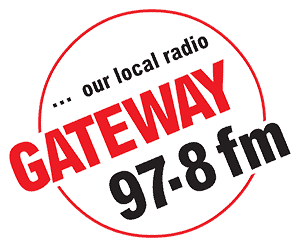Ads help us keep this site online
Lloyds Bank is calling on families to join the frontline in the fight against fraud as a third of Brits report an increase in scam calls and texts since the beginning of March, according to new research.
The survey of over 4,500 UK adults revealed that almost one in four (23%) admit to worrying more about a family member falling victim to fraud since the beginning of March.
The study also found that one in three people aged 55 and over worry about becoming a victim of fraud at least once a month. Despite this, a fifth (19%) never talk about their finances with anyone. Over a quarter (27%) of those who said they would like to talk about money more with their family feel embarrassed about the topic and nearly a fifth (18%) worry that it would lead to arguments.
Lloyds Bank is calling on families to be the first line of defence by talking openly about fraud to help protect each other. Taking action to talk especially with older relatives is important as one in four UK adults (26%) are particularly worried about them falling victim to scams in the current environment.
As an official Friends Against Scams partner and a champion of destigmatising the subject of money and finances through the M-Word campaign, Lloyds Bank has partnered with Relate – the leading relationships charity – to equip people with tools they need to spot the signs of scams and how to tackle the topic of fraud with family members.
Paul Davis, Retail Fraud Director at Lloyds Bank, said:
“We’re seeing new scamming techniques emerge in recent weeks as fraudsters race to find new ways of convincing people to hand over their cash.
“Helping to keep our customers’ money safe is an absolute priority, and the more we know about the different types of scams and how to spot the signs, the safer we will all be – and we believe everyone has a role to play.
“Although it can be uncomfortable, talking to the people we love about how scammers gain people’s trust is the first step in being able to stop fraudsters in their tracks. We are calling on families to be the first line of defence across the country, to use these tools and learn more about the dangers. We want to give people the confidence to take action to help protect their loved ones from the devastating effects of scams.”
While many think they can spot a scam, with the majority (87%) of Brits saying they would feel confident about recognising the signs of financial fraud, general research and experience shows that they might be over-confident. Lloyds Bank’s research reveals that one in ten (10%) are not even aware of any of the most common types of fraud such as impersonation scams, safe account scams, purchase scams or investment scams. Nearly three in five (59%) fraud victims say that if they had been more aware of the different types of fraud, they could have prevented it from happening to them.
Stephen Lea, Emeritus Professor of Psychology, University of Exeter and expert on fraud psychology commented,
“If someone’s telling you to take an important decision without talking to anyone, that person is almost certainly a fraudster. Regardless, if significant sums of money are involved, it’s always a good idea to talk to someone you trust before you commit – your partner, a parent, a grown-up son or daughter, or a good friend.
“If you feel awkward about having the conversation or if it is nagging at you, that is often a sign that you should have the conversation. A good way of getting that conversation going is to imagine it to yourself first and think what your loved one’s response might be to help you prepare.”
Lloyds Bank has recently announced additional services to support vulnerable customers through the crisis including launching a dedicated telephone service for over 70s and prioritising services for vulnerable customers and NHS workers.
When asked about the one person in their immediate family whom they would approach to talk to about their financial situation, over a fifth (22%) would go to their mum, followed by their children (20%) then their dad (13%). For those aged 55 and over, more than two-fifths (42%) would choose to talk to their son or daughter.
Those polled said that the top five reasons they would choose that person were:
- Feeling comfortable talking to them about anything (47%)
- Trusting their judgement (43%)
- Being closest to them in the family (33%)
- Thinking they are good with their money so could help (28%)
- Feeling that they would not be judged (24%)
In talking about fraud, the stigma and embarrassment that some might feel if they fall victim to a scam is also removed. TV presenter Helen Skeltonknows this first-hand after having fallen victim to fraud where she lost £70,000. She said: “I wasn’t worried about being scammed. You always think that it is something that happens to someone else and that you’ll know when it’s happening to you. But scammers are getting more and more sophisticated when it comes to targeting individuals. That is why talking to each other, especially our parents and grandparents, will help us all grow our understanding about the different fraud out there and ultimately protect each other which is the most important thing.”
For further help and support on staying safe from scammers, join Helen Skelton and Paul Davis on Instagram Live (@helenskelton) on Wednesday 29 April at 17:00 as they discuss how to talk about fraud and how to start a conversation with your family.
For more information visit Lloyds Bank’s Protect Yourself From Fraud hub: https://www.lloydsbank.com/help-guidance/protecting-yourself-from-fraud.html
